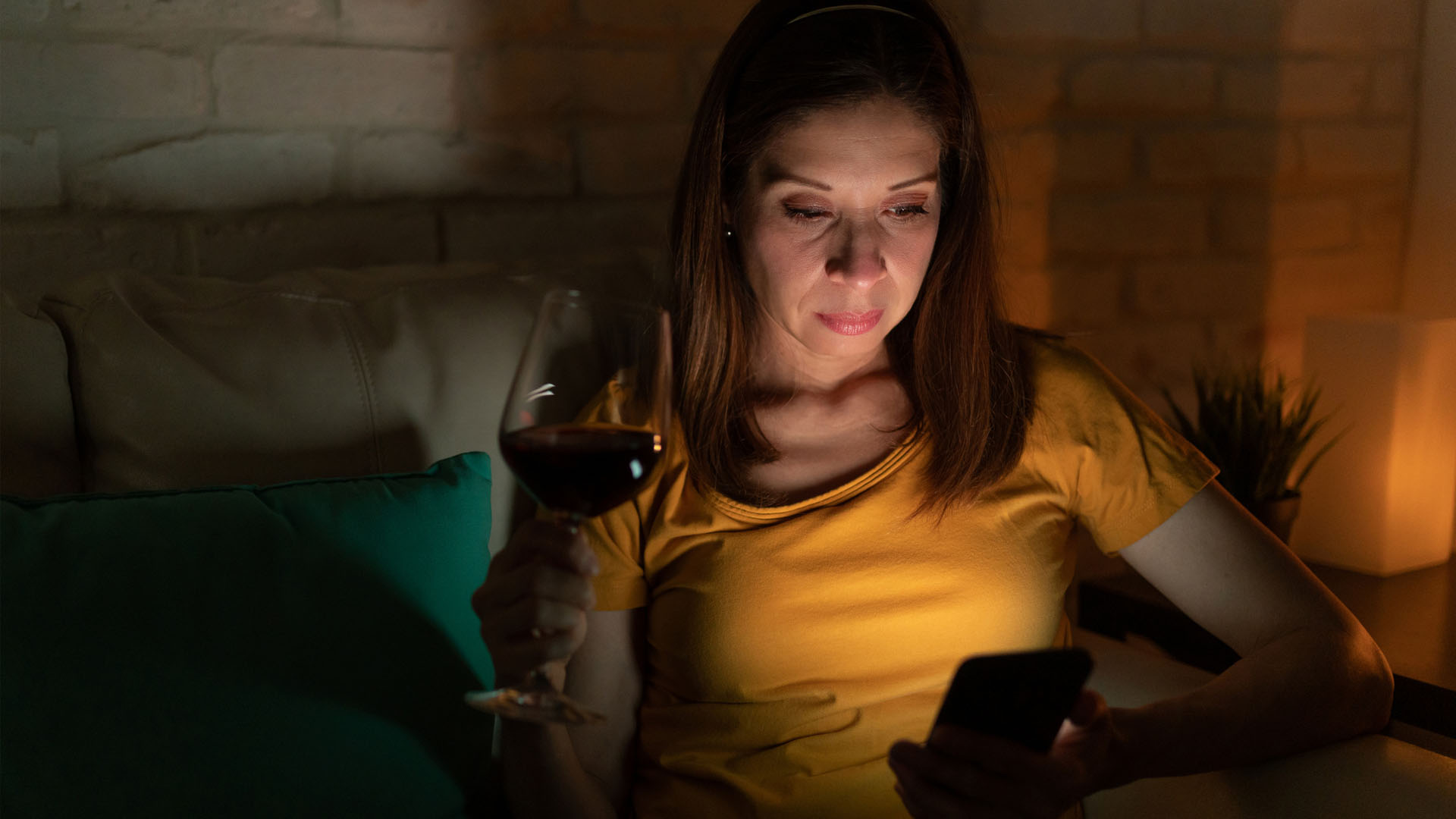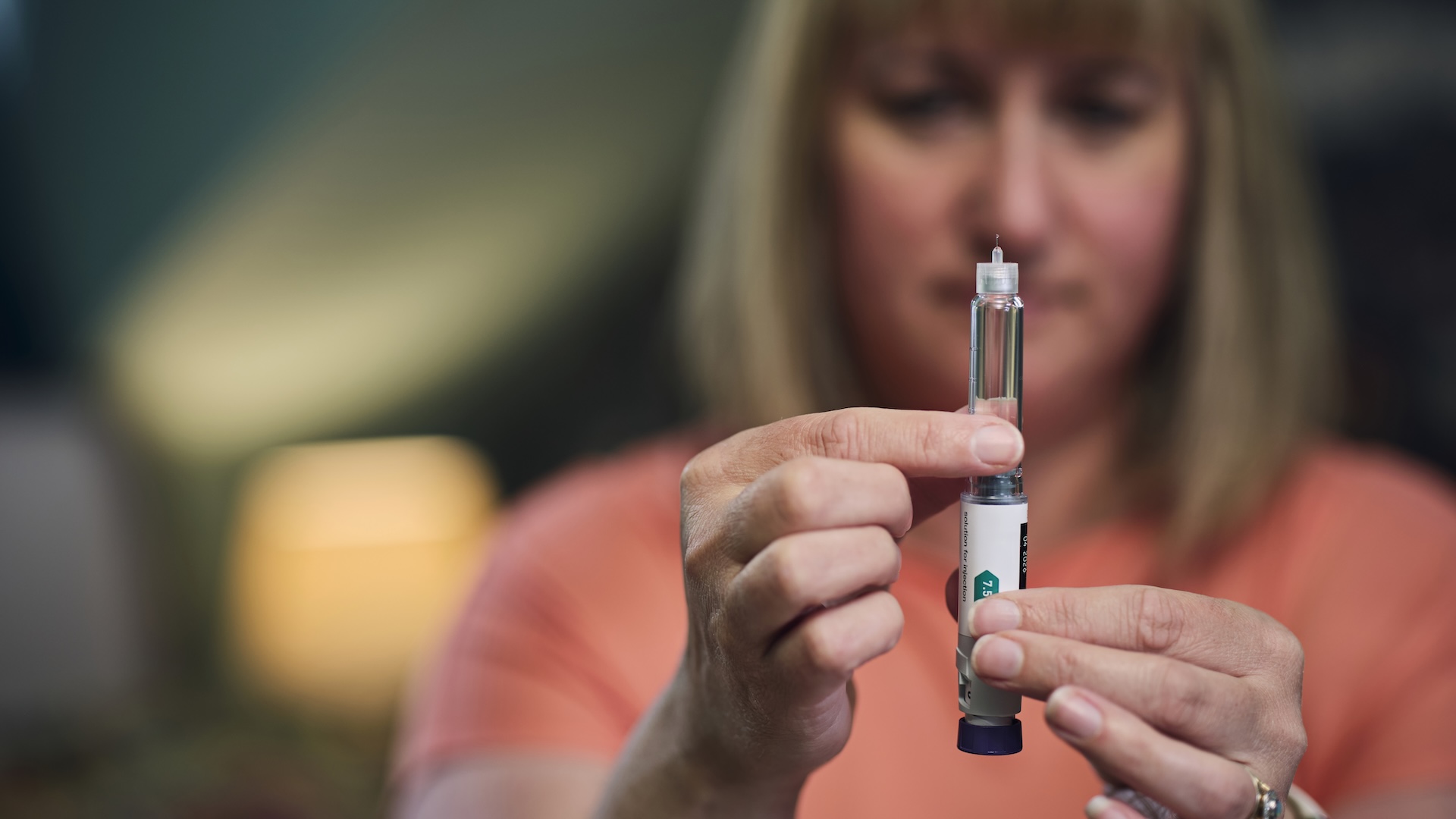How does alcohol affect sleep?
A nightcap can often make people feel tired, but how does alcohol affect sleep?

Many people enjoy a glass of wine with dinner or a nightcap before bedtime, but how does alcohol affect sleep?
Alcohol can help people feel more relaxed and sleepy, but it's also linked to poor sleep quality and duration, according to the Sleep Foundation, a U.S. nonprofit organization. Generally, the more a person drinks, the more their sleep quality suffers.
Below, we'll take a closer look at how alcohol affects the different stages of sleep, as well as how the quantity and timing of alcohol can influence sleep quality.
Does alcohol help you sleep?
Many people assume that a drink or two can help them get to sleep faster — and to some extent it can. Having alcohol before bedtime leads to a faster sleep onset, according to a 2020 review in the journal Neuropsychopharmacology.
However, while alcohol may hasten the sandman, it can negatively impact sleep quality. Drinking alcohol (from one to six standard drinks) around 30 to 60 minutes before bedtime means that alcohol levels in the breath and blood peak around lights-out time, according to the National Institute on Alcohol Abuse and Alcoholism. This peak disrupts the natural pattern and order of sleep. For example, people who've had alcohol may experience more frequent periods of lighter sleep or being awake, especially during the second half of the night. So after a few drinks, you're likely to have increased wakefulness and more light sleep.
Consuming alcohol regularly before bed can also make it more difficult to sleep, according to a 2016 study in the journal Drug and Alcohol Dependence. Researchers found that chronic or habitual alcohol use before bedtime led to bouts of insomnia. Sleep problems, such as difficulty getting to sleep, frequent waking during the night and difficulty getting up in the morning, were also more common in people with alcoholism.
Drinking to fall asleep regularly can build up a tolerance to alcohol, gradually lessening booze's ability to help you drift off, according to the National Sleep Foundation.
How does alcohol affect sleep?
It's helpful to know the four stages of sleep to understand how alcohol directly impacts every part of sleep. The National Institutes of Health (NIH) breaks sleep down into the following stages, which the body cycles through around four or five times a night:
- Stage 1: Non-rapid eye movement (REM) sleep — light sleep that's easily disrupted by noises or disturbances. It lasts around 1 to 5 minutes.
- Stage 2: Non-REM sleep — deeper sleep with slower heart rate and lower body temperature. This type of sleep takes up around half of a sleep cycle.
- Stage 3: Non-REM sleep — the deepest stage of sleep and the most difficult to awaken from. It takes up around a quarter of a typical sleep cycle.
- Stage 4: REM sleep — this is the stage of sleep in which we dream. This stage can last up to an hour per sleep cycle.
Guy Meadows, a sleep researcher and co-founder of The Sleep School, an online platform offering science-based support around sleep, told Live Science that alcohol affects the four stages of sleep in different ways.
"First of all, it increases our initial deep sleep, disrupting our sleep stages' overall balance," he said. "It also increases light sleep across the night, which means we're more wakeful and easily disturbed when we should be enjoying deep sleep — especially in the latter stages of sleep. Finally, it reduces rapid eye movement sleep across the whole night."
REM sleep is vital for healthy brain development, the National Sleep Foundation noted. Not getting enough REM sleep can make concentrating difficult, cause forgetfulness and leave people feeling excessively sleepy during the day. Poor sleep can also contribute to a wide range of health problems, according to the NIH, including obesity, high blood pressure and depression.
Does alcohol affect men's and women's sleep differently?
Women's sleep is more disturbed by alcohol than men's, Meadows said. In a 2011 study published in the journal Alcoholism, Clinical and Experimental Research, men and women consumed the same amount of alcohol before going to bed. Although the results were self-reported, women said they felt more tired before bed, experienced more nighttime awakenings and recorded less sleep than their male counterparts.
In a 2020 review published in Alcohol Research: Current Reviews, researchers looked at how alcohol use in women affected their sleep compared with men. They found that women felt more sleepy than men after having alcohol, had more disrupted sleep and less total sleep time across the night.
How much alcohol affects sleep?
Even one or two drinks can directly impact sleep quality. But the more someone drinks, the more significant the impact, said Meadows, pointing to a 2018 study in the journal JMIR Mental Health. Low amounts of alcohol (fewer than two servings per day for men or fewer than one serving per day for women — a serving being a regular beer or 5 fluid ounces of wine) decreased sleep quality by 9.3%; moderate amounts of alcohol (two servings per day for men or one serving per day for women) decreased sleep quality by 24%; and high amounts of alcohol (more than two servings per day for men or more than one serving per day for women) decreased sleep quality by 39.2%.
As a general rule, Meadows said, people should aim to leave at least three to four hours between drinking and sleeping to avoid sleep disruption. Alcohol-free days can also improve sleep quality. "For the best sleep, try to have at least four alcohol-free nights every week," Meadows said.
Additional resources
Get the world’s most fascinating discoveries delivered straight to your inbox.
Joanne Lewsley is a UK-based freelance writer and editor, covering health and lifestyle news and features. She mainly creates evidence-based health and parenting content and has worked with a number of global sites, including BabyCentre UK, Medical News Today, Fit & Well, Top Ten Reviews, and Yahoo!

